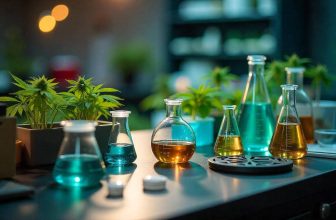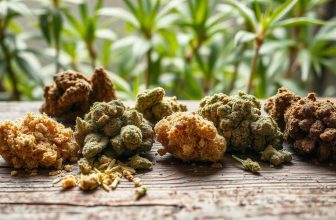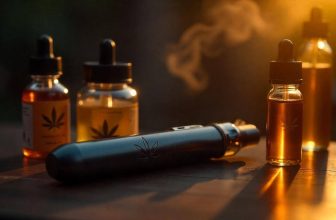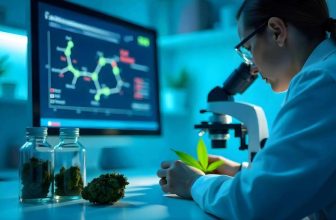Since the Agriculture Improvement Act of 2018, the cannabis industry has been booming. This regulation allowed for the federal use of cannabis with less than 0.3% tetrahydrocannabinol.
The CBD market has been using this law by promoting low-THC content products.
Businesses can source cannabis from different places if the demand exceeds the supply. But are you sourcing quality CBD oil?
Why You Should Check Your CBD Oil Sourcing
Sellers and suppliers need to know their products. Sourcing CBD oil is a delicate business. There are many federal sanctions on its usage and trade. Marijuana is still a Schedule I drug under the federal Controlled Substances Act (CSA).
The strictest supervision is necessary when sourcing CBD products to avoid legal troubles. In cases like this, knowledge of the law is invaluable.
CBD sourcing should further be done only after a thorough inspection of the legitimacy of both crop and seller. Documents like reports from third-party testing and Certificate of Analysis (COA) are invaluable. Here is what they help with.
Third-Party Testing to Help Determine CBD Oil Quality
A third-party test report often comes as a part of the Certificate of Analysis (COA) displayed by companies.
This step in the authentication process helps eliminate the risk of report tampering. In the CBD business, third-party testing is conducted by labs that have no connection to the cannabis industry.
- These independent agents and testing centers examine samples from the sellers to ensure a fair report.
- Buyers are more likely to trust these technicians because they are third-party businesses.
- The independent position of these labs makes tampering impossible. As a result, their reports are all the more reliable to customers.
Agents take the samples and run tests. Aside from the general test for cannabinoid content, they can also produce detailed analyses for toxins, pesticides, and heavy metals.
As a result, unbiased third-party testing helps ensure the quality of the product and the seller's trustworthiness.
Don’t Forget to Ask for a Certificate of Analysis (COA)
A COA is one of the most crucial documents when sourcing CBD oil. It is a mark of trust and transparency in the industry. Buyers need to avoid companies that do not possess or refuse to show this certificate.
The COA for most legitimate sellers is readily available. It is a certificate that reveals, in detail, the chemical composition of the product, including terpenes, chlorophyll, cannabinoids, and THC.
If a company doesn’t send you a COA, consider it a red flag. It could be that the company is trying to hide results, or that it’s not following the quality requirements expected.
Trustworthy suppliers display the certificate of three kinds of chemical analysis. They include:
1. Cannabinoid Analysis, showing a detailed report of the cannabinoids present, including total weight and product potency.
2. Pesticide Analysis shows the chemicals to which the cannabis crop has been exposed. A seller with minimal to no exposure is preferred since some of these pesticides can cause a lot of damage to the body. For this reason, CBD oils extracted from organic crops are best.
3. Heavy Metal Report is important when looking to source CBD. Cannabis is a naturally hardy plant, absorbing all available substances from the soil to survive. Even toxic metals like lead, arsenic and mercury are absorbed. This certificate shows that the content of these harmful substances is at a safe level.
Some companies choose only to display the cannabinoid analysis on their site. Such a move is usually made to hide the presence of other potentially harmful components in the products.
Toxins and solvent particles sometimes make it into the CBD oil, lowering its potency. Such a situation adversely affects the oil quality, so some businesses tend to smooth it over.
Organic Sourcing
Cannabis is known for being a hardy plant. Since it does not require much attention, they have been known to exceed the demand in states like Oregon.
The secret behind the plant's endurance is its tendency to absorb all materials in the soil. From the nitrogen to the toxins and harmful metals, cannabis uses them all to survive.
- Their extraction power is such that these plants were used in Chernobyl to decontaminate the area.
- Cannabis plants were so hardy that they could successfully absorb nickel, lead, and cadmium from the radioactive soil.
- This high-absorption behavior is why organic outsourcing is necessary to produce the best quality oils.
- An organic cannabis supplier can be deemed only so when certified by the US Department of Agriculture (USDA).
Companies Certified Organic by the USDA can claim to be free from certain chemicals and pesticides. Therefore, the cannabis crop from these sources is considered better for health.
Additionally, the absence of these chemical components also helps produce a purer final product.
Since they do not contain these pesticides from the very beginning, organic cannabis does not have to undergo a rigorous decontamination process. Such an advantage helps increase the potency of CBD oil.
CBD Oil Manufacturing Methods
The manufacturing process of CBD oil is the most critical factor in ensuring its purity and potency.
The oil quality varies when exposed to different manufacturing methods, even if the cannabis happens to be from the same stock. There is a difference in the quality because some extraction methods are more effective and precise than others.
The best manufacturing method for CBD oil is the Supercritical CO2 Extraction method.
In this process, a raw cannabis extract is introduced in a mixture of liquid carbon dioxide to help it rid of its impurities. This procedure takes place in a carefully regulated setting.
Temperature, pressure, and time are carefully moderated in this extraction facility to ensure that the highest quantity of CBD is extracted. The Supercritical CO2 method also produces the least waste.
CBD oil can also be manufactured by various other methods. Some of these include Short-Path Distillation, Winterization, and Ethanol Extraction. CBD oil can also be made at home by sautéing it in edible oil or flash-freezing it in dry ice.
However, none of these methods produce the same quality results as the sophisticated Supercritical CO2 extraction.
CBD and THC Potency Count
FDA legalizes a maximum of 0.3% of the psychoactive component tetrahydrocannabinol. Products containing more THC than this are considered illegal federally. When sourcing CBD oil, it is essential to be aware of these regulations. Only businesses that pass this mark are to be considered.
- Results from third-party testing and a Certificate of Analysis (COA) help.
- These two documents provide a detailed look into the product's CBD and THC content.
- They reveal these compounds' concentration, weight, and potency to ensure a transparent transaction.
- CBD potency reports help reveal the strength of the product's properties.
Several cannabinoids and terpenes are naturally present in cannabis extract. These substances can sometimes remain in the CBD oil even after manufacturing. Their presence can lower the potency of the product.
A CBC test reveals this by showing all amounts of cannabidiol in the oil and the impurities that may affect its effectiveness.
On the other hand, buyers can make sure they buy a legal product via THC testing. Ensure that the oil is still legal to buy and sell under federal law.
Carrier Oil
The type of carrier oil used in CBD oil production dramatically affects the overall taste and consistency of the product.
Traditionally, CBD extract is introduced into the carrier oil after the extraction process is complete. At this point, the liquid is still in its raw form and must be appropriately infused.
The consistency of the final product hinges on the nature of the base substance itself.
Since the CBD extract may still contain fats and terpenes, choosing a carrier oil compatible with this mixture is essential.
Natural, non-refined oils like coconut, almond, and hemp oil are preferred because the CBD is infused better in these oils.
Pure coconut oil or coconut-based oils are exceptionally well suited as carrier oils because of their high natural fat content. This quality allows the waxes from the cannabis extract to be mixed into the oil without much hassle.
In contrast, refined oils like soybean or grapeseed fare poorly as carrier oils. They are ill-suited as solvents because they cannot absorb all the substances from the cannabis extract sufficiently. Such a condition leads to a drop in the potency of the final product.
So, when looking to source CBD oil, it is best to stick with natural oils.
Medical Claims by Brand
Despite claims, not all of the so-called medical benefits of cannabis are backed by science. Buyers need to take these guarantees with a grain of salt as they are the result of business marketing.
- The US Food and Drug Administration (FDA) has approved one CBD cannabis treatment for a medical condition.
- Epidiolex is the only CBD drug that is a legitimate medical aid. It helps to treat two kinds of epilepsy.
- Studies have been conducted on the medical benefits of some of these substances. For example, cannabidiol has been shown to help patients recovering from cancer.
- Research shows that the anti-inflammatory properties of this compound help alleviate the side effects of cancer treatment.
When buying CBD oils, avoid those products advertising many medical benefits. Rather than trust these unfounded claims, buy transparent products aimed at overall wellness.
However, precautions must still be taken when consuming these products and hemp-based CBD oils are safer and more trustworthy. It contains negligible amounts of the psychoactive THC while providing all the benefits of CBD.
Final thoughts: How to Choose a High-Quality CBD Oil?
When buying high-quality CBD oil, find one that's well worth the price tag. Checking the company's COA and relying on third-party test results are two important ways to verify the product's authenticity.
However, if you want to source CBD, it is crucial to go the extra mile. Here are things you can do to get the most value-for-money deals.
1. Trustworthy Supplier
It is crucial to be aware of important information like the per mg price of CBD or the current retail rate for these products. This knowledge is sure to give you a leg-up.
Additionally, this information can also help you interact better with the sellers. Since you are well aware of the product yourself, you can test which suppliers are genuine and completely know what they are selling.
2. High-Grade Crop
Looking for oil sourced from high-quality when buying CBD oil. Variants like Charlotte's Web and ACDC have a higher CBC content and thus produce more potent oil.
Organic, pesticide-free plants are the best sources. If the CBD comes from such plants, you are more likely to receive a more effective product.
Follow us on 
Join the Community
Don't miss any news with our newsletter





